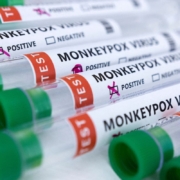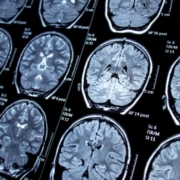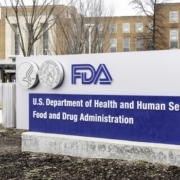Abbott receives FDA clearance for whole blood rapid test to help with assessment of concussion at the patient’s bedside
Abbott receives FDA clearance for whole blood rapid test to help with assessment of concussion at the patient’s bedside
ABBOTT PARK, Ill., April 1, 2024 /PRNewswire/ — Abbott’s i-STAT TBI cartridge has received clearance from the U.S. Food and Drug Administration (FDA) to be used with whole blood, allowing doctors to help assess patients with suspected concussion at the patient’s bedside and obtain lab-quality results in 15 minutes. Previously, the tests to help with the assessment of TBI were only cleared for use with plasma or serum, requiring samples to be sent to a lab for processing and testing.
This new clearance will enable testing to be performed in an array of new healthcare settings beyond hospital emergency departments including urgent care clinics with a certificate to perform moderate complexity tests. This is an important step toward a future where testing could be done outside traditional healthcare settings, such as on the sidelines of sporting events.
The whole blood test on a portable instrument helps clinicians evaluate patients 18 years of age and older who present with suspected mild traumatic brain injury or mTBI, commonly known as concussion. Test results can help rule out the need for a CT scan of the head and assist in determining the best next steps for patient care. The ability to perform the test with a whole blood sample means testing can take place at healthcare settings without a lab which helps to accelerate the evaluation of head traumas.
With this clearance, the i-STAT TBI test can be used to help evaluate patients up to 24 hours after injury, an important advancement since those injured often wait before seeking care.
Nearly 5 million people go to the emergency department for a TBI in the U.S. each year, but more than half of people who suspect they have a concussion never get it checked.
For decades, standard TBI assessment has remained the same, with doctors leveraging the Glasgow Coma Scale, a subjective doctor assessment, and CT scans to detect brain tissue damage or lesions.
“Emergency departments can be a busy place. It’s important to be able to triage patients quickly,” said Geoffrey Manley, M.D., PhD, Chief of Neurosurgery at Zuckerberg San Francisco General Hospital, Professor of Neurosurgery at the University of California San Francisco and contact principal investigator for the TRACK-TBI Network. “Historically, that process for suspected concussions was largely subjective. With the help of this whole blood test, we can quickly and objectively determine whether or not a patient needs a CT scan or additional evaluation, right at the point of care. It’s an incredibly helpful tool that advances the treatment of traumatic brain injury.”
How the test works
The i-STAT TBI cartridge with the i-STAT Alinity System requires a small venous blood sample, which is applied to the test cartridge. The cartridge is then inserted into the portable i-STAT Alinity instrument. The test measures two biomarkers from the brain that may be released into the bloodstream, indicating a possible brain injury. Testing for these two biomarkers – ubiquitin C-terminal hydrolase L1 (UCH-L1) and glial fibrillary acidic protein (GFAP) – in the aftermath of an injury can provide clinicians with essential information about a patient’s condition and can help healthcare providers decide an appropriate treatment plan.
“Clinicians have needed an objective way to assess patients with concussions,” said Beth McQuiston, M.D., medical director in Abbott’s diagnostics business. “When you look at all the other diseases, or other organs in the body, they all have blood tests to help assess what’s happening. Now, we have a whole blood test that can help assess the brain right at the patient’s bedside – expanding access to more health providers and therefore patients.”
The newly cleared test expands Abbott’s TBI test offerings, which includes the i-STAT TBI Plasma test and the ARCHITECT® and Alinity i lab test (serum and plasma), which were all cleared previously.
The ability to use whole blood to help assess TBI is an important step in Abbott’s vision to make its tests available in all settings where people seek care for head injuries. Abbott is engaged in ongoing research and planning that may, in the future, allow the test to be used in non-healthcare settings and with a broader population including teens and pediatrics.
About Abbott
Abbott is a global healthcare leader that helps people live more fully at all stages of life. Our portfolio of life-changing technologies spans the spectrum of healthcare, with leading businesses and products in diagnostics, medical devices, nutritionals and branded generic medicines. Our 114,000 colleagues serve people in more than 160 countries.
The i-STAT TBI blood test was developed in collaboration with the U.S. Department of Defense U.S. Army Medical Research and Development Command’s (USAMRDC) U.S. Army Medical Materiel Development Activity (USAMMDA). The USAMRDC has been dedicated to developing a solution for the objective detection and evaluation of TBI for more than two decades and has played a critical role in developing the TBI test on Abbott’s i-STAT Alinity platform.
The Transforming Research and Clinical Knowledge in Traumatic Brain Injury (TRACK-TBI) research team was the first to demonstrate how this TBI blood test can be used for the benefit of TBI patients in clinical care.
Source: Abbott/PR Newswire











